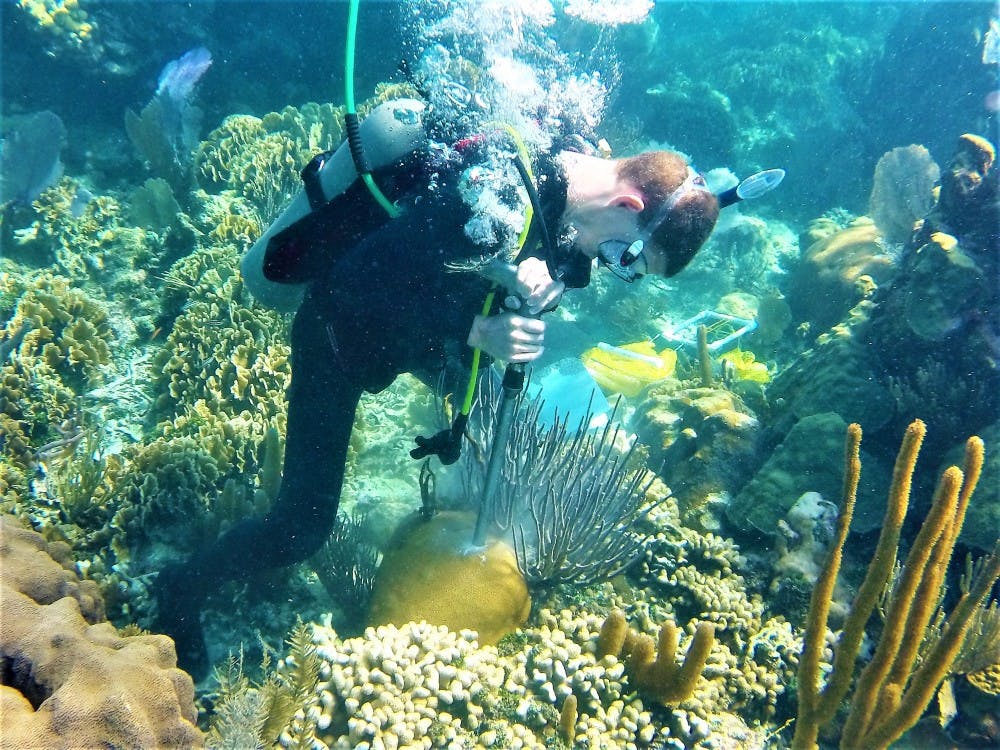Humans’ use of resources, land management and lifestyles can have significant impacts on the planet — and the ocean's coral reefs are at risk, UNC researchers said.
Justin Baumann, a postdoctoral researcher in marine sciences and biology at UNC, along with several other researchers, examined coral in the world’s second-largest reef system and concluded that climate change and human activity pose a serious threat to coral growth.
Researchers specifically compared the growth of nearshore and offshore corals of the same reef system. They found that the nearshore corals, which have historically grown faster, have experienced slowing growth rates while rates for offshore coral — 30 to 60 kilometers from the coast in this study — have remained stable.
“Corals can adapt and they can acclimate, so basically as long as they are not dead, there’s still hope,” Baumann said. “It’s not irreversible damage but we are sitting in a pretty precarious situation where, if we are not careful and we do not act quickly, it could become a lot more permanent.”
Baumann said coral reefs are vital to the world because they prevent coastal erosion, provide storm protection, act as a nursery for juvenile fish, boost the economy through tourism and serve as a food source.
To understand how coral growth rates have been impacted by climate change and other stressors, scuba divers collected 124 coral core samples from 19 sites along a 300-kilometer stretch of the Belize portion of the Mesoamerican Barrier Reef System in 2009, 2011 and 2015.
The coral's core acts like the rings of a tree, showing the coral's growth over the years.
Researchers considered the impact of coral bleaching, a process caused by environmental stressors that turns coral white. They determined that while coral bleaching does kill coral, it was not driving the long-term growth rate decline of nearshore coral.
Due to its proximity to land, nearshore coral is more heavily impacted by human activity that leads to runoff, erosion and pollution.



